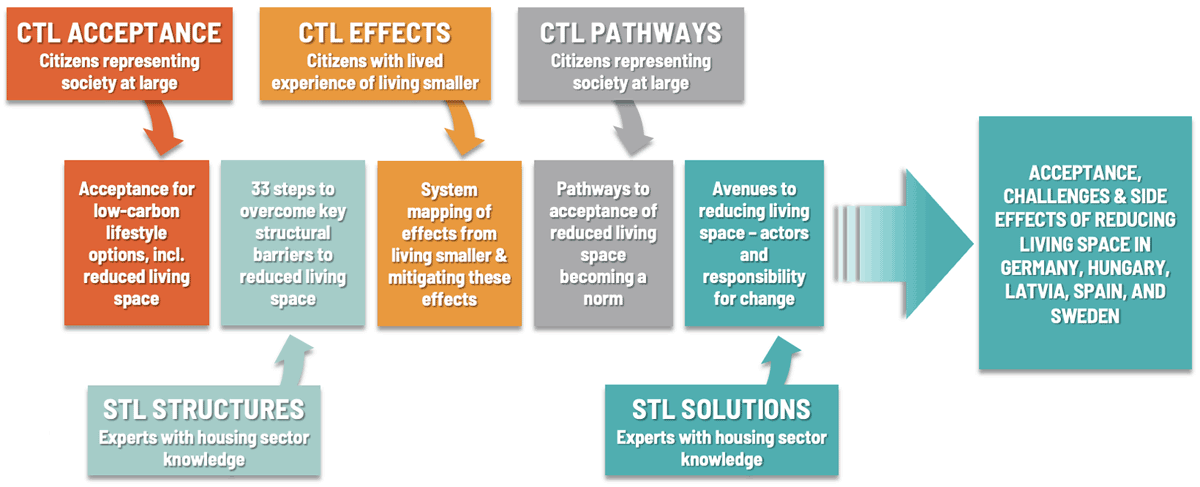

🌍 Context and Background
The article "Living smaller: acceptance, effects and structural factors in the EU," published by Buildings & Cities on June 27, 2024, discusses the concept of "living smaller" as a means to mitigate housing-related environmental impacts across the European Union (EU). Authored by a team including Matthias Lehner and Jessika Luth Richter, the research highlights that household energy consumption accounts for 27% of the EU's final energy use, with space heating representing 60% of this. Given that the average living space in Europe has expanded by 16% from 2000 to 2018, the study emphasizes the urgent need to address housing efficiency and sufficiency.
📊 Research Methodology
The research utilized "thinking labs"—interactive workshops conducted in five EU countries (Germany, Hungary, Latvia, Spain, and Sweden) from 2022 to 2024. These labs provided insights from a diverse range of participants, including citizens, civil society members, academics, and policymakers.
🔑 Key Findings
The study found low initial acceptance rates for reducing living space (29% approval) and shared housing (21% approval). Major barriers include complex housing markets, privacy concerns, and entrenched social norms favoring homeownership. Motivations for smaller living include environmental values, practical considerations, and economic factors such as lower housing costs.
📉 Effects of Downsizing
Participants noted both positive and negative effects of downsizing. Negative impacts included reduced social opportunities, privacy concerns, and storage limitations, while positive outcomes featured less time spent on maintenance, improved access to urban amenities, and enhanced community connections.
🏛️ Policy Implications
The research outlines critical policy implications for urban planning and infrastructure. These include integrated urban planning to support smaller living spaces, revising building codes to encourage downsizing, and enhancing community support systems. The importance of high-quality shared amenities and public spaces is also stressed.
🔮 Future Considerations
Successful smaller living initiatives hinge on fair implementation across society, integration with urban sustainability goals, and a cultural shift in perceptions regarding homeownership. The study suggests that proper policy support could make living smaller a viable solution for reducing housing-related environmental impacts while maintaining quality of life.
In conclusion, the article advocates for a systemic shift towards smaller living arrangements in the EU, highlighting that while challenges exist, the potential benefits and societal acceptance could grow with the right conditions and policies.